LG vs Samsung: the story behind the biggest rivalry in tech
A tale of espionage, rivalry and... restaurants?
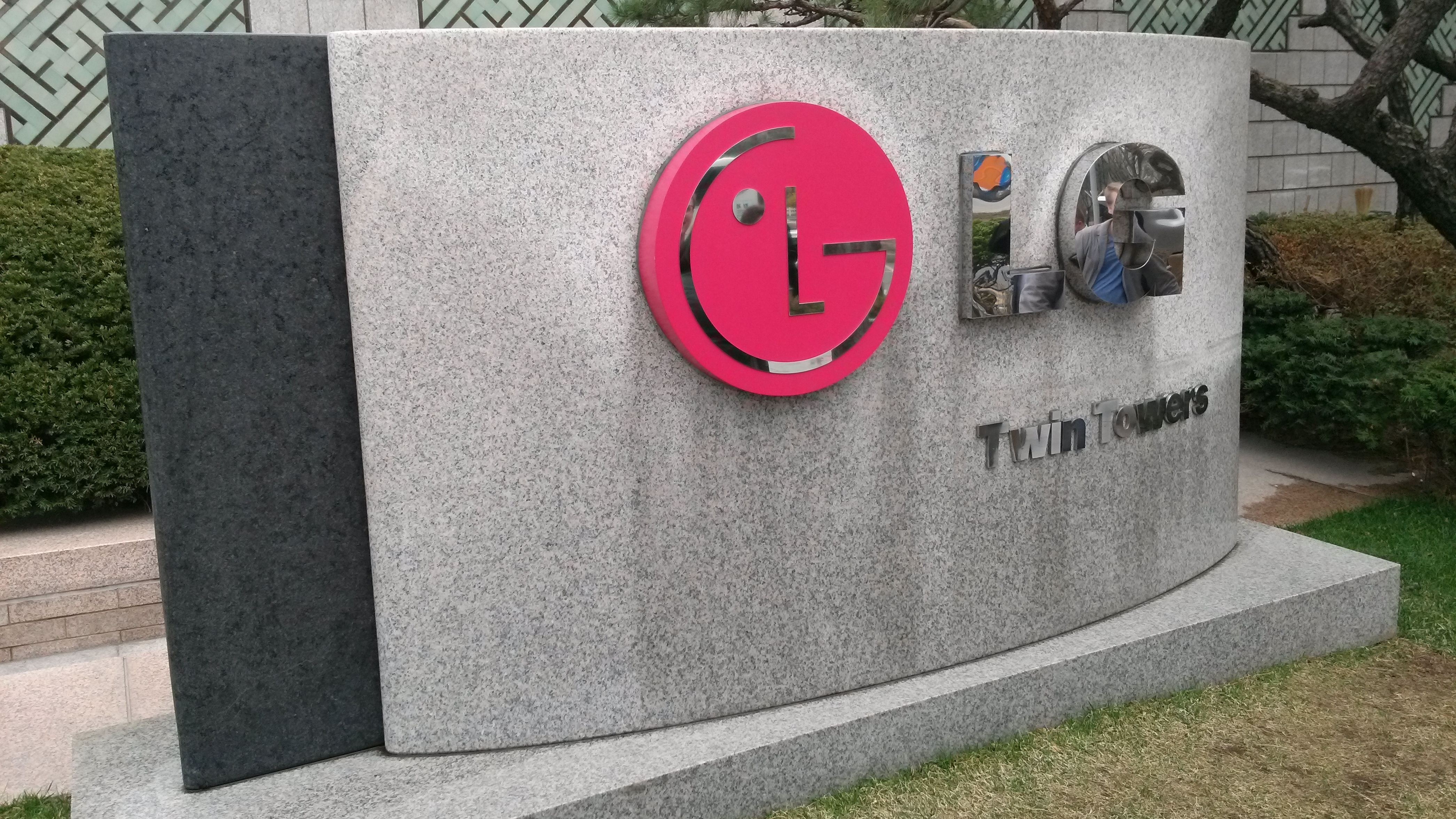
The rivalry between Korean tech giants LG and Samsung is well known, but it took a visit to LG's headquarters in South Korea this week for the true nature of the conflict to become clear to us.
Both Seoul-based, the two companies have been in competition for nearly 50 years, and they're somewhat obsessed with one another. We've all read the stories about the skullduggery between them: secrets have allegedly been stolen, accusations have been made, court cases have dragged on. Even in the last few weeks, the companies have re-locked horns in patent disputes over their OLED technologies.
Police recently raided some Samsung facilities in order to secure evidence after LG accused its neighbour of spying. It's a familiar story in these parts.
The upshot of the situation is that passing through buildings owned by these companies is like getting through security at an airport. Bags are scanned. Cameras are confiscated. Lenses on phones are taped over. USB storage devices are not allowed. Security cameras are everywhere.
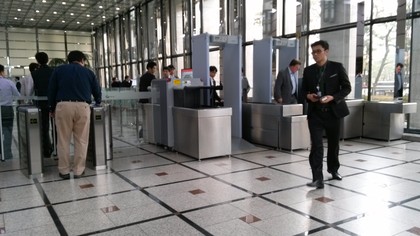
The entrance lobbies are full of metal detectors and bag scanners just like departure lounges, but unlike an airport, you don't have to worry about this on the way in - it's on the way back out again that the stringent security measures are deployed. They want to make sure you're not trying to steal any secrets. As a visitor, it's a fascinating curiosity. For the people who work here, it's just everyday routine.
We're currently travelling on a bus heading north towards the border with North Korea. This is where LG's enormous LCD plant is based. We're due to take a tour and we've already been told to expect even more stringent security measures when we get there.
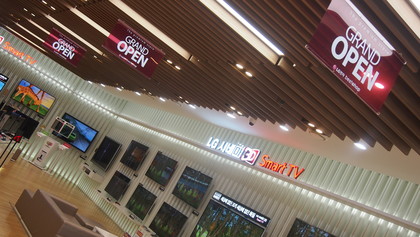
It's not hugely surprising - both companies are leading innovation in display technology and seem to be zigging and zagging in unison. Both are bringing out similar products at the same time. Which Korean brand brought the "world's first curved OLED TV" to CES this year? Both of them, naturally.
Get daily insight, inspiration and deals in your inbox
Sign up for breaking news, reviews, opinion, top tech deals, and more.
Why you'd want one is up for debate, especially given that only 200 standard OLED TVs have been sold by LG total in Korea - but LG says the curved version will hit the shelves later this year regardless.
They'll be available first at the LG Best Shop megastore in downtown Seoul, which appropriately looms ominously right across the road from the equally sized Samsung superstore
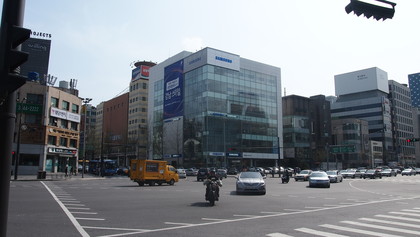
More than tech
But LG or Samsung is far more than a technology choice for many people in South Korea. It's a lifestyle - a way of life. And for many of the 200,000 or so people employed by these companies, it's an allegiance that will last their entire working life.
Unlike many conglomerates in Europe or America, big businesses in South Korea feel a responsibility to the viability of the nation's economy. As part of that, they take on many graduates every year as a matter of course and the vast majority of these young men and women will then never work for another company from that day until the day they retire. Careers are made and broken within. People simply don't leave.
This hiring process is fierce in itself: both LG and Samsung want to hire the best people, but there's a talent shortage in Korea, so there aren't enough skills to go around. If you're a gifted software engineer and you speak Korean, there's a well-paid job waiting for you in Seoul.
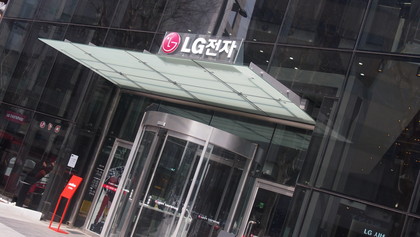
Surf and turf wars
The relationship between these brands goes deeper than mere rivalry, too. The companies are both obsessed and repulsed by each other in equal measure. Samsung has been mentioned a lot by our LG guides this week, and not disparagingly - LG clearly has huge amount of respect for what Samsung has achieved in the last few years. But at the same time, there is no love lost when it comes to the workforce.
Both brands have their own social territories locally and internationally. Restaurants, hotels and bars are divied up between them. Samsung employees know not to go to certain places and it's the same the other way around - they don't like to mix socially.
It's very similar to the way sports fans in the West know which pubs they should go to for a match, and which they should avoid.
This even plays out at the big tech shows around the world - there are unwritten rules about which Korean restaurants it's OK to go to during CES in Las Vegas or IFA in Berlin, depending on which company you work for. Both look over at the other's turf with envious eyes.
Appropriately, both LG and Samsung own their own self-titled Baseball and Soccer teams in Korea – sports clubs run at a loss to promote the brands and fly the flags. Employees of both companies can apply for tickets to watch the games - the local derbies being the hottest ticket in town.

Next time you're in Seoul, perhaps you'd like to head down to the Jamsil Baseball Stadium to watch the LG Twins hit all the homeruns, or to the Suwon World Cup Stadium to see the Samsung Bluewings play soccer.
Of course, the majority of Koreans have no affiliation to either brand - this is a nation of over 50 million people, while LG employs 80,000 people total. But most people still seem to have a preference. We asked random Seoul citizens the question: LG or Samsung? Most people smiled. Some laughed. But they all still gave an answer.
James was part of the TechRadar editorial team for eight years up until 2015 and now works in a senior position for TR's parent company Future. An experienced Content Director with a demonstrated history of working in the media production industry. Skilled in Search Engine Optimization (SEO), E-commerce Optimization, Journalism, Digital Marketing, and Social Media. James can do it all.
